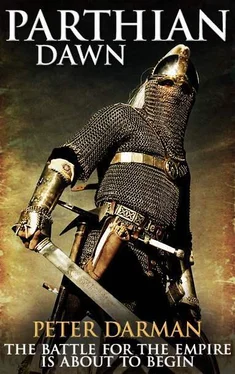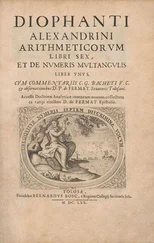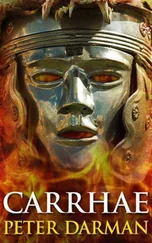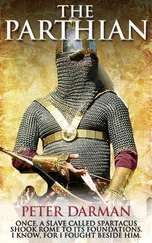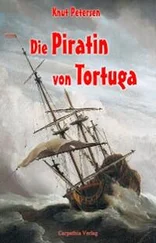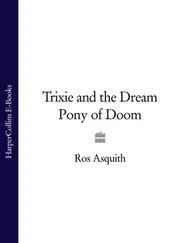Peter Darman - Parthian Dawn
Здесь есть возможность читать онлайн «Peter Darman - Parthian Dawn» весь текст электронной книги совершенно бесплатно (целиком полную версию без сокращений). В некоторых случаях можно слушать аудио, скачать через торрент в формате fb2 и присутствует краткое содержание. Год выпуска: 2012, Жанр: Исторические приключения, на английском языке. Описание произведения, (предисловие) а так же отзывы посетителей доступны на портале библиотеки ЛибКат.
- Название:Parthian Dawn
- Автор:
- Жанр:
- Год:2012
- ISBN:нет данных
- Рейтинг книги:3 / 5. Голосов: 1
-
Избранное:Добавить в избранное
- Отзывы:
-
Ваша оценка:
- 60
- 1
- 2
- 3
- 4
- 5
Parthian Dawn: краткое содержание, описание и аннотация
Предлагаем к чтению аннотацию, описание, краткое содержание или предисловие (зависит от того, что написал сам автор книги «Parthian Dawn»). Если вы не нашли необходимую информацию о книге — напишите в комментариях, мы постараемся отыскать её.
Parthian Dawn — читать онлайн бесплатно полную книгу (весь текст) целиком
Ниже представлен текст книги, разбитый по страницам. Система сохранения места последней прочитанной страницы, позволяет с удобством читать онлайн бесплатно книгу «Parthian Dawn», без необходимости каждый раз заново искать на чём Вы остановились. Поставьте закладку, и сможете в любой момент перейти на страницу, на которой закончили чтение.
Интервал:
Закладка:
That afternoon I wrote a letter to Mithridates at Ctesiphon. I am no scribe, but I think it summed up my feelings succinctly. I sat alone on my bedroom balcony, Najya perched on a stand beside me.
To King Mithridates
Word has recently reached me that your father, King Phraates, has died of a broken heart. It indeed breaks my heart to think that such a good man has departed this world, and sickens me greatly that the one who was the cause of his death has stolen his crown and now dares to call himself the King of Kings.
I have also heard that you hold me responsible for your father’s death, and have used this lie to deceive numerous other kings of the empire into electing you to your present high office. And now you seek to make yourself master of all the Parthian Empire, but I have to tell you that while I still live you will never know peace. For you are a poison at the very heart of the empire, and every day that you sit upon the throne Parthia dies a little. The only cure for the empire is to remove this ulcer, this rottenness, and that includes your lackey Narses, another traitor who fouls the empire by his mere existence. I will not rest until you and he have suffered the same fate as those other traitors Porus and Chosroes. This I swear by all that is sacred.
I remain, your most implacable enemy.
Pacorus, King of Dura.
Thus was the die cast. The falcon suddenly stirred and spread her wings, and made at harsh kak, kak, kak noise while looking to the east, obviously sensing an ill wind. I stroked her head.
‘Easy, little one.’
I gave her a morsel of meat and she stopped fretting. I walked to the balustrade and gazed across the blue waters of the Euphrates to the east. So Mithridates was King of Kings with Narses as his right-hand man. They would soon be gathering an army to march against Dura, for they realised that neither of them would know peace while I was still in the world. And that would mean they would have to fight me. It would come down to one great battle, one final clash to decide the fate of the empire. I smiled. Good. Let them come; I would be ready.
Epilogue
The view was certainly impressive; Crassus conceded that. As the most powerful and wealthy man in Rome he normally never left the centre of the Roman Empire, but this spring had been different for Gnaeus Pompey Magnus was returning to Rome. He had been away from the city for five years, during which time he had destroyed the Cilician pirates and defeated Mithridates of Pontus and Tigranes of Armenia. These triumphs had made him extremely popular in Rome, much to the annoyance of Crassus. Pompey was already a hero to the common people of the city and these victories would only serve to increase his prestige and therefore influence. Pompey had a talent amounting to genius for getting under Crassus’ skin, and the past few years had provided a perfect example. Not only had Pompey used his political influence to gain extraordinary powers to deal with the pirate threat in the eastern Mediterranean, he had also used his influence to gain command of the entire Roman war effort in the East. And to cap it all Pompey had sent one of his toadies, a legate by the name of Quintus Caecilius Metellus, to Rome to persuade Crassus to meet him in Asia Minor. He knew why he had made the request, of course. Pompey would receive a hostile reception from a Senate packed with Crassus’ allies, which would make honouring his word to his soldiers about granting them land upon their demobilisation extremely difficult.
So Crassus found himself in the luxurious splendour of a villa overlooking the town of Ephesus on the Aegean coastline. Pompey had invited him to dine with him as soon as he had arrived at the port, the villa nestling in the hills above the bustling town. Crassus was a frugal man — he had only one house in Rome — whereas Pompey was the exact opposite, flaunting his wealth and power at every opportunity. Tonight was no different, with the food being served from plates of gold and wine poured into jewel-encrusted silver cups. There were mosaics on the floor depicting images of Greek gods and hunting frescoes on the walls. Crassus reclined on a large couch that was set against the back wall of the dining area, facing the open side of the room that gave a panoramic view of the port and sea below.
Pompey reclined on his couch propped up on his left elbow, Crassus next to him. Servants first served them mulsum , a delicious chilled white wine with honey, and then served the first course of eggs, salad with asparagus and salted fish.
The formalities out of the way, Pompey got down to business.
‘I assume that the Senate is still hostile towards me.’
‘You are right in that assumption,’ gloated Crassus.
‘The Senate is ungrateful to its faithful sons.’
Slaves began serving the second course of meat, game and poultry.
Crassus saw no point in playing word games with his host. ‘What do you wish of me, Pompey?’
Pompey laughed and clapped his hands together. ‘Blunt and to the point, as ever. Is it not obvious? I wish to return to Rome without having to endure the tedium of censure by the Senate.’
Crassus picked at some cooked peacock brains. ‘You also want land for your returning soldiers?’
‘Of course, those who have shed blood for Rome should be rewarded.’
Crassus was prompted to ask where the gold and silver that Pompey had looted in Cilicia, Armenia and Pontus had ended up. Such wealth would be more than enough to purchase land for his veterans, but he thought better of it. He knew Pompey was very familiar with the phrase, ‘to the victor, the spoils’, and interpreted it very literally.
‘I have friends in the Senate who can calm troubled waters,’ said Crassus, ‘though such services are difficult to arrange.’
‘And very expensive, no doubt,’ added Pompey.
Crassus said nothing but smiled at his younger rival. Pompey continued.
‘I have been away from Rome for too long, but Rome still has unfinished business in the East. The man who leads the Roman invasion of Parthia will become very rich and very powerful, perhaps the most powerful man in the whole world.’
Crassus was now very interested. He knew the Parthian Empire was rich from its control of the silk route from China and its vast stockpile of gold that had once belonged to the ancient Persian Empire. But Crassus was slightly wary of his host. He was, after all, probably more ambitious than himself.
‘But do you not covet Parthia yourself?’
Now it was Pompey’s turn to smile. ‘My friend, there are other lands in the world to conquer. Besides, as I said, I have been away from Rome for too long.’
Crassus then brought up a subject designed to wipe the smile off his face.
‘Tell me, why did you retreat in the face of the Parthian rabble at the Euphrates?’
Pompey may have covered himself in glory in the East, but his withdrawal from the Euphrates without a fight had puzzled many in Rome and had cast a shadow over his military reputation.
Pompey seemed unconcerned by the question. ‘Why? I will tell you why. Prior to facing “the rabble” as you call them, we had been battered for five days by a sandstorm the like of which I had never seen before. We lost half our supplies and the men had no sleep for at least four nights.’
‘A sandstorm?’ Crassus was most sceptical.
Pompey’s smile had now disappeared. ‘Unless you have been in the midst of one you will not know their power. When we arrived at the river we did not find a rabble but a well-disciplined army of horse and foot led by a king called Pacorus.’
‘Pacorus?’ Crassus was startled by the name. Pompey’s smile returned.
‘That is correct, the same Pacorus that led the cavalry of Spartacus during the slave rebellion in Italy. Well, he is a king now and has raised two legions of his own. Can you imagine that, a Parthian king with Roman legions? But you know this, of course, because he destroyed your man, what was his name, Lucius Furius, at Dura.’
Читать дальшеИнтервал:
Закладка:
Похожие книги на «Parthian Dawn»
Представляем Вашему вниманию похожие книги на «Parthian Dawn» списком для выбора. Мы отобрали схожую по названию и смыслу литературу в надежде предоставить читателям больше вариантов отыскать новые, интересные, ещё непрочитанные произведения.
Обсуждение, отзывы о книге «Parthian Dawn» и просто собственные мнения читателей. Оставьте ваши комментарии, напишите, что Вы думаете о произведении, его смысле или главных героях. Укажите что конкретно понравилось, а что нет, и почему Вы так считаете.
